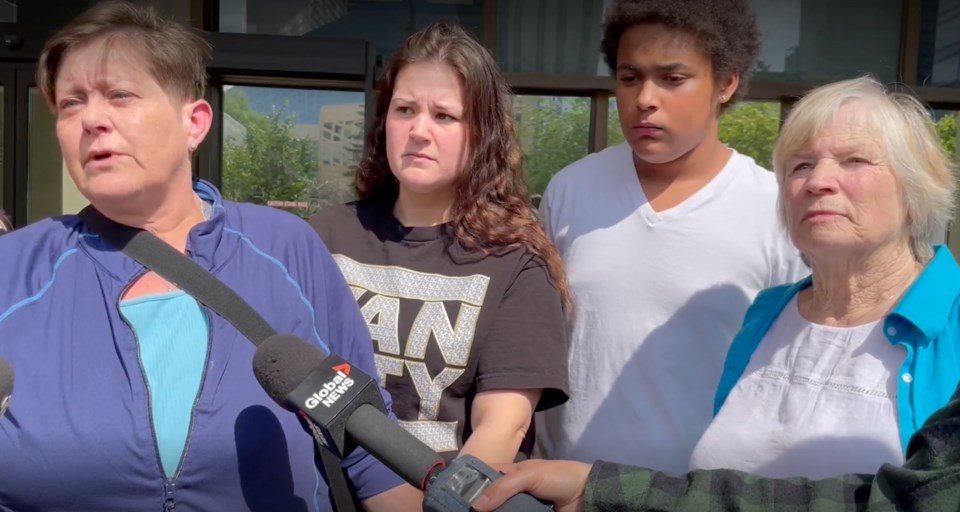Stacey Worsfold never thought her dad’s desire to help others would get him killed.
But on June 22, a jury found Beryl Musila, 34, guilty of the first-degree murder of 75-year-old Ron Worsfold. His daughter says Worsfold was just trying to help Musila.
“He helped so many people through the 30 years of managing that apartment building (and was) always giving people a hand up," Stacey Worsfold said. "I never thought ... it would kill him in helping someone.”
Ron Worsfold lived in a Mission and was the apartment manager for a building in the St. Albert neighbourhood for years. But on July 7, 2017, Musila drugged the senior, whom she was living with at the time, and beat him to death with a hammer.
The grisly details of the trial played out over nine weeks, as Musila represented herself against the first-degree murder charges.
Jurors deliberated for two hours on Wednesday June 21 and into Thursday June 22 and eventually came back with the guilty verdict at 3 p.m. Musila, who has two children, faces an automatic life sentence and won’t be eligible for parole for 25 years.
Stacey Worsfold said Musila, who has been in custody since she was arrested in July 2017, showed no remorse or regret throughout the entire trial.
“We've been living with grief for six years,” Stacey Worsfold said.
“We've been in prison right along with her for six years.”
Since Ron Worsfold’s death in 2017, the trial has been delayed a number of times, as Musila fired six lawyers throughout the process. Musila faced a preliminary inquiry in March and April 2018, after which the judge ordered her to stand trial.
Musila was originally scheduled to stand trial for the murder on April 14, 2020; however, the trial was delayed until fall 2021 and again until October 2022.
Stacey Worsfold said the trial was difficult, but her family and friends are satisfied with the verdict.
The verdict was delivered just weeks before the July 7 anniversary of Ron Worsfold's death, and his daughter said she isn’t sure how the end of the trial will affect her feelings this year. She said the trial may have been a way to continue to feel connected with her dad.
“With the journey of grief you never know. It could be harder,” Stacey Worsfold said.
In the six years since his death, she said she visits her father’s gravesite more often than she wants to admit.
“He was my best friend and I miss him horribly,” she said as she cried.
“My dad was the least judgmental person you’d ever meet. He never looked down on anyone. He said everyone had a story, and everyone had a path. He was just an amazing man, and I am so proud to be his daughter.”
Worsfold said she wants to continue to carry her father’s legacy into the future and let go of any anger or blame she feels as a result of his death.
"I think we need the time to heal and to complete the grieving process, because at this stage where these things linger, you just get stuck in that blame and anger and hatred, and I don't want to be there," she told reporters outside the courthouse.
"My dad would want us all to go on and be in joy and peace and have great lives. And his death is not going to define him."



